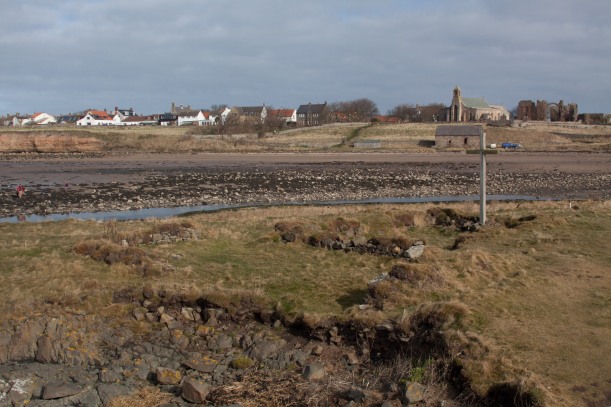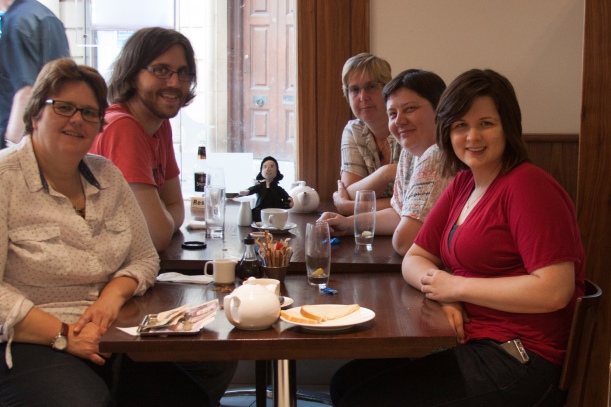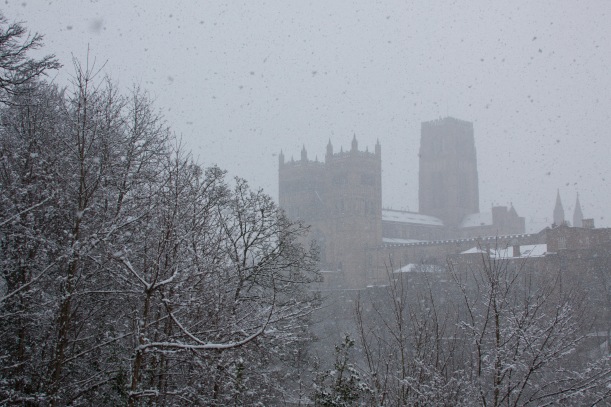(This sermon from was preached on July 17th at Memorial United Methodist Church in Fernandina Beach, FL. The manuscript is below and the video from the 9:30 service is above.)
Last week’s psalm of lament and this week’s Psalm 121 are both what are known as “psalms of ascent.” You can see that in the titles that the authors have placed before the psalm. Most of the titles you will find in your bible have been added by the translators to make life easier for you when looking for a passage. The notes at the beginning of many of the psalms, however, are in the original text. They can be instructions for the worship leader, descriptions of the content, or other words or phrases whose meaning has been lost over time. Psalms 120-134 are grouped together with the same title: A Song of Ascents. Scholars suggest that these psalms were used by pilgrims during the festival seasons as they travelled to Jerusalem. The city of Jerusalem and the Temple itself are on the highest hill in the area and so one literally must “go up” to Jerusalem.
Theses songs would be sung along the road and in services at the beginning of their journey and before they set off. Taken together the psalms are a mixture of different types and themes, but they are mostly short and easy to memorize. Psalm 121 is one of the most popular of the group as well as the whole psalter. It is a psalm of unqualified praise to a God whose protection knows no limits.
It begins with the beautiful question: I lift my eyes to the hills, from where will my help come? In the times of the Bible, there were lots of options to turn to for help. Every hill and high place in the area contained shrines and poles in honor and worship of a god for every ailment or problem. If you needed crops to grow, there was a god for that. If you wanted children, there’s a god for that. If you were on a journey, there’s a god for that. Whatever you needed help, you could look to the hills and find an assortment of gods to pray to and worship.
Things are not so different now. When we are in need of help we lift our eyes to the Hollywood Hills and find movie stars selling insurance and credit cards which will solve our problems. We read tabloid magazines and websites which while they may not solve our problems will at least distract us from them long enough to get us by.
When we are unhappy with our country or our community we lift our eyes to capital hill and pray that our candidate is elected or that our law is passed.
When we want to make more money we look to the hills of wall street, or we look uphill and see what job or position might bring us more success.
The psalmist looks at these hills, and knows that true help will not come from the tops of any of them. True help will only come from the Lord who made the hills and who created the rest of earth and heaven.
How often do we set our sights too low. We put our trust in people who promise to make things easier for us, who know a better way, a faster way. And then how slowly it takes us to realize our mistake.
Every election it seems like we all get a messiah complex for our preferred candidate. If our man or woman is elected then things will be better. Inevitably, when that person is elected we realize how wrong we were. As long as they have been doing polls, almost every president has seen their approval ratings consistently drop over the course of their presidency. Once they get into office the reality often fails to live into the rhetoric.
There is a saying, “Never meet your heroes.” So often we put people on pedestals only to discover that the more you get to know the more human you realize they are. Malachi is at this cute stage in life where he is almost sitting up on his own. He is soo close. I will often put him up on my lap and let him practice. He will push the boundaries and bend over and then pull himself back up. But if he goes over too far, my hands are on either side to keep him from falling too far. The other day, we were playing this game and I got distracted by something outside the window. Malachi leaned to far over and bumped his head on the arm of the chair. Fortunately it was not far and he didn’t even really notice, but it reminded me that I am not a perfect parent. I will not always be there when he trips or stumbles. At some point, probably around the time he is a teenager, Malachi will realize this as well. I hope by that point, he has come to learn that God is always there. God never sleeps or gets distracted. The seeming paradox of God is that the One who created the world also cares about each one of us individually. The God who orders the planets is also concerned with our path in life as well and asks us to follow where God leads.
As we know, even when we walk with God, bad things happen. The attack in Nice this week does not mean that God looked away and got distracted. Being in God’s protection means more than physical safety. As I was preparing for the funeral last Tuesday I noticed that Psalm 121 is one of the suggested psalms to be read in the service. Its assurance of God’s protection serves as both a comfort for the ones who are grieving, but also that God’s protection remains with the person who has died.
So often we limit God’s activity and care to the life we know when in reality God moves and works beyond this life. In Jesus Christ God came into this world, experienced death, and then in the resurrection proved that not even death is the end of God’s work in the world. When Paul in Romans tells us that “nothing can separate us from the love of God” there is no caveat there. The original letter did not have a footnote with a list of exceptions. Nothing can separate us from the love of God. This total and complete love of God is beyond our ability to understand, but should encourage us along the way.
One article I read this week suggested that Psalm 121 was used to prepare pilgrims before they set off on their journey. The first two verses would have said by those who were leaving: “I lift my eyes to the hills, from where will my help come? My help comes from the Lord, who made heaven and earth.” And then the rest of the psalm was then recited by those who were staying. These words from Psalm 121 would serve as a reminder to the person that God would protect them on their journey.
Travelling in ancient times was difficult and dangerous. The journey to Jerusalem was done entirely on foot without a plane, train, or car. Wild animals and robbers were a constant source of danger. An injury in the wrong place could leave you exposed to the elements, with heat stroke being a real concern. In the face of so much to fear, however, the pilgrim needed to be reminded of their purpose in making the journey.
The opportunity to worship of God at the Temple was a privilege that is difficult to even put into words. For some Jews it was a once in a lifetime opportunity. As they prepared to set off and I imagine frequently along the way, they needed to lift their eyes again to the hills and fix their eyes on the hill of Zion.
As the ground became rocky, they needed to remember that God was with them every step of the way and would not let their feet stumble. As the sun beat down and sapped their energy, they remembered that God was their shade at their right hand protecting them day and night. As robbers threatened and animals howled, the remembered that God would keep them from all evil-real and imagined. Through the whole of the journey they needed to remember that the God they would worship at the end of their journey was the same God who was travelling with them along the way.
While we may not be going to Jerusalem, we are also on a journey. When the path becomes rocky, the sun intense, and the evil around us too threatening there is a temptation to look to the lesser hills around us for help. To seek out the hills that feel good at the moment, and will take less effort to climb. However, Psalm 121 is an encouragement for our journey. When we are afraid, we are called to look for help from the Creator of hills. When troubles come and evil threatens, we are to be reminded that God is with us, that God will shade us from the sun and protect us in the night. There is no aspect big or small that is not of any concern to our God. And when at last we reach our final destination, it is Psalm 121 that sends us off with the reminder that the God who is with us in this life will continue to keep us in the life to come. Thanks be to God.





















